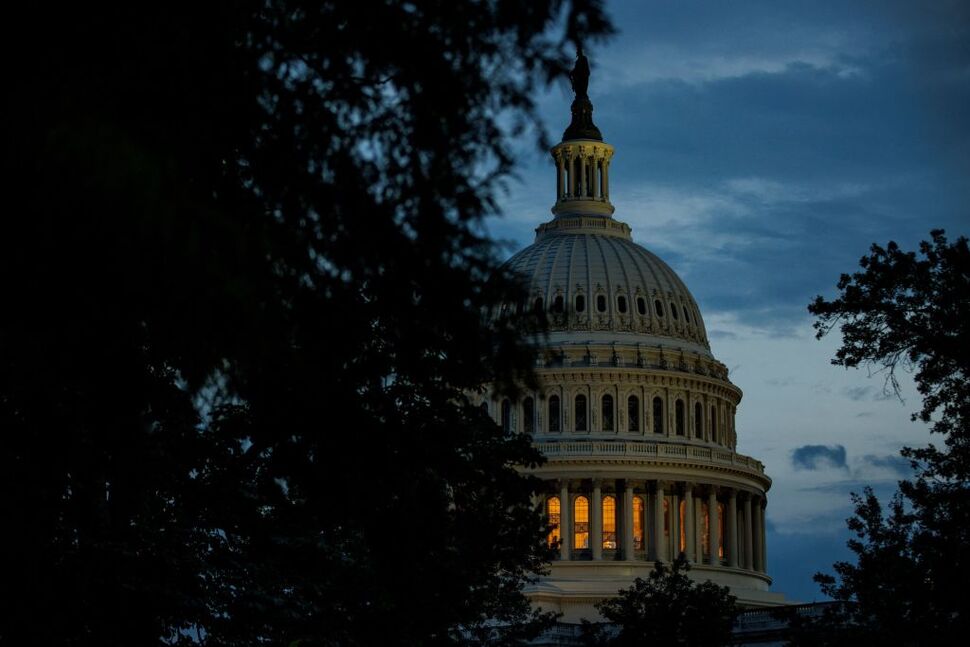Algunos legisladores republicanos estatales parecen estar divididos sobre cuáles deberían ser sus próximos pasos sobre el tema.
Anti-abortion advocates are pressing for expanded abortion bans and tighter restrictions since the Supreme Court overturned the national right to abortion. But with the debate mostly deadlocked in Washington, the focus is shifting to states convening their first full legislative sessions since Roe v. Wade was overturned.
Although some state GOP lawmakers have filed bills to ban abortion pills or make it more difficult for women to travel out of state for an abortion, others seem split about what their next steps should be. Some are even considering measures to ease their states’ existing bans somewhat, particularly after Republicans’ less-than-stellar showing in the 2022 midterm elections and voters’ widespread support for abortion on state ballot measures.
Meanwhile, Democratic-led states are looking to shore up abortion protections, including Minnesota and Michigan, where Democrats sewed up legislative majorities in the November elections.
Anti-abortion groups said their goal in overturning Roe v. Wade was to turn the decision back to the states, but now they are making clear that what they want is an encompassing national abortion ban.
“Legislation at the state and federal levels should provide the most generous protections possible to life in the womb,” says the “Post-Roe Blueprint” of the anti-abortion group Students for Life.
The new Republican-led House showed its anti-abortion bona fides on its first day of formal legislating, Jan. 11, passing two pieces of anti-abortion legislation that are unlikely to become law with a Senate still controlled by Democrats and President Joe Biden in the White House.
So at the federal level, the fight is taking shape in the courts over the abortion pill mifepristone, which has been used as part of a two-drug regimen for more than two decades, and recently became the way a majority of abortions in the U.S. are conducted.
States With the Highest Abortion Rates
People protest in reaction to the leak of the US Supreme Court draft abortion ruling on May 3, 2022 in New York. – The Supreme Court is poised to strike down the right to abortion in the US, according to a leaked draft of a majority opinion that would shred nearly 50 years of constitutional protections. The draft, obtained by Politico, was written by Justice Samuel Alito, and has been circulated inside the conservative-dominated court, the news outlet reported. Politico stressed that the document it obtained is a draft and opinions could change. The court is expected to issue a decision by June. The draft opinion calls the landmark 1973 Roe v Wade decision “egregiously wrong from the start.” (Photo by Bryan R. Smith / AFP) (Photo by BRYAN R. SMITH/AFP via Getty Images)
View All 13 Slides
The Biden administration has moved to make mifepristone more widely available by allowing it to be distributed by pharmacies, as well as clarifying that it is legal to distribute the pills via the U.S. mail. But the conservative legal group Alliance Defending Freedom, on behalf of several anti-abortion groups, filed a federal lawsuit in Texas in November, charging that the FDA never had the authority to approve the drug in the first place.
In Texas, some lawmakers are exploring new ways to chip away at Texans’ remaining sliver of access to abortions. For example, one proposal would prevent local governments from using tax dollars to help people access abortion services out of state, while another would prohibit tax subsidies for businesses that help their local employees obtain abortions out of state.
Those measures could get lost in the shuffle of the state’s frantic 140-day, every-other-year session, if legislative leaders don’t consider them a priority. The state’s trigger law banning almost all abortions that went into effect last year “appears to be working very well,” said Joe Pojman, founder and executive director of Texas Alliance for Life, an anti-abortion group. In August 2022, three abortions were documented in the state, down from more 5,700 reported during the same month a year earlier, according to the most recent state data.
The top state House Republican said his priority is boosting support for new moms, for example, by extending postpartum Medicaid coverage to 12 months.
[ REPORT: Maternal Health and Abortion Laws ]
It’s “an opportunity for the Texas House to focus more than ever on supporting mothers and children,” said Republican House Speaker Dade Phelan.
South Dakota Gov. Kristi Noem, a Republican, struck a similar theme in a Jan. 10 speech, saying she will introduce bills to expand a program for nurses to visit new mothers at home and help state employees pay for adoptions. Previously, Noem said South Dakota needs to focus “on taking care of mothers in crisis and getting them the resources that they need for both them and their child to be successful.”
Algunos legisladores republicanos de Texas indicaron que pueden estar abiertos a crear excepciones a la prohibición del aborto en casos de violación e incesto. Y un legislador republicano planea intentar modificar la prohibición de Dakota del Sur, que permite abortos solo para embarazos que amenazan la vida, para aclarar cuándo los abortos son médicamente necesarios.
“Parte del problema en este momento es que los médicos y proveedores simplemente no saben cuál es esa línea”, dijo la representante estatal Taylor Rehfeldt, una enfermera que ha experimentado abortos espontáneos y embarazos de alto riesgo.
Rehfeldt quiere restablecer una ley anterior que permite abortos para embarazos que podrían causar daños físicos graves e irreversibles a una “función corporal importante”. Rehfeldt dijo que también está trabajando en proyectos de ley para permitir abortos para personas que tienen fetos no viables o que quedaron embarazadas después de una violación o incesto.
Algunos activistas contra el aborto en Georgia están presionando a los legisladores para que vayan más allá de la prohibición estatal de la mayoría de los abortos alrededor de las seis semanas de embarazo. Quieren una ley que prohíba las recetas de telesalud de píldoras abortivas y una enmienda constitucional estatal que declare que un embrión o feto tiene todos los derechos legales de una persona en cualquier etapa de desarrollo.
“Roe está fuera del camino”, dijo Zemmie Fleck, directora ejecutiva de Georgia Right to Life. “No hay más obstáculos para lo que podemos hacer en nuestro estado”.
Los líderes republicanos, sin embargo, están esperando su momento mientras el tribunal supremo de Georgia sopesa una impugnación legal de la prohibición de seis semanas. “Nuestro enfoque permanece en el caso ante la Corte Suprema de Georgia y verlo en la línea de meta”, dijo Andrew Isenhour, vocero del gobernador republicano Brian Kemp.
Los legisladores y defensores del derecho al aborto tienen pocas opciones para promover sus iniciativas en estas cámaras estatales controladas por los republicanos.
Un demócrata de Georgia presentó un proyecto de ley que haría que el estado compense a las mujeres que no pueden interrumpir sus embarazos debido a la prohibición estatal del aborto. La representante estatal Dar’shun Kendrick reconoció que es probable que su proyecto de ley no vaya muy lejos, pero dijo que espera que mantenga la atención sobre el tema y obligue a los legisladores republicanos a “poner su dinero donde está su boca” para apoyar a las familias.
En Missouri, donde casi todos los abortos ahora están prohibidos, los defensores del derecho al aborto están considerando la idea de eludir la legislatura estatal dominada por los republicanos pidiendo a los votantes en 2024 que consagren el derecho al aborto en la constitución del estado.
Pero esos esfuerzos podrían verse afectados por una serie de proyectos de ley presentados por legisladores republicanos que buscan dificultar la inclusión de iniciativas constitucionales en la boleta electoral, y para aquellas medidas que sí lo hacen, al requerir la aprobación de al menos el 60 %. de votantes para la aprobación.
Es probable que los demócratas de Michigan y Minnesota utilicen su nuevo control tanto de las cámaras legislativas como de la oficina de los gobernadores para proteger el acceso al aborto. Si bien los votantes de Michigan ya aprobaron una medida electoral en noviembre que consagra el derecho al aborto en la constitución estatal, los demócratas están tratando de derogar una ley de aborto de 1931 de los libros.
En Illinois, los demócratas que controlan la legislatura reforzaron recientemente las protecciones contra el aborto en medio de una mayor demanda de residentes de otros estados. Este año, los legisladores de Nueva York pueden enviar a los votantes una propuesta de enmienda constitucional estatal para proteger el aborto, mientras que los legisladores de Nueva Jersey se pronunciaron en contra de una propuesta similar.

 Sports2 years ago
Sports2 years ago
 Entertainment2 years ago
Entertainment2 years ago
 News2 years ago
News2 years ago
 News3 years ago
News3 years ago
 News3 years ago
News3 years ago
 Tech3 years ago
Tech3 years ago
 Sports2 years ago
Sports2 years ago
 Tech3 years ago
Tech3 years ago



